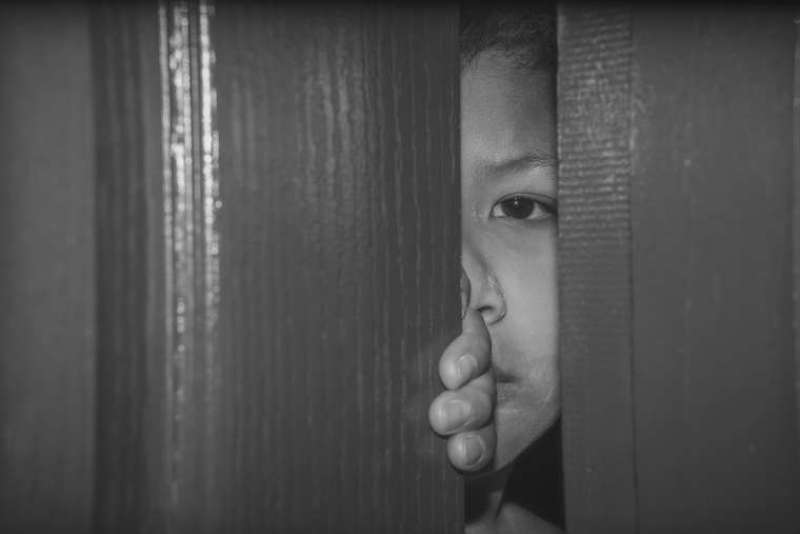Before being allowed to celebrate Mass for families housed at a migrant detention center in south Texas, a local priest was made to sign a confidentiality agreement promising that he would not divulge any information regarding the conditions inside.
There are 2,400 beds for mothers and children detained in the South Texas Family Residential Center, a privately-run detention facility in Dilley, Texas operated by CoreCivic, which received $135 million in 2017 for their immigration detention government contracts.
Father Ruben Garcia, a parish priest in Dilley, celebrates Mass and hears confessions at the detention center twice a week.
After Trump administration promised last month to reunite separated families detained on immigration-related charges or before asylum hearings, an expansion of family detention centers, where a child is detained with their parent, has been presented as a viable alternative to seperation.
“The Dilley” is the largest family detention center in the U.S. It costs taxpayers $298 per person per day to detain the mothers and children, who are mostly from Guatemala, Honduras, and El Salvador. Many are seeking asylum.
Father Garcia told CNA that his homilies for the women and children often focus on the blessed motherhood of the Virgin Mary.
“Our Lady always says that she takes care of her children, and the mothers at the detention center take care of their children the best that they can,” said Garcia.
Garcia encourages the detained mothers to pray the rosary and said that he regularly shares the messages from the Virgin Mary’s apparitions in Fatima, Lourdes, and Mexico.
Archbishop Gustavo García‚ÄêSiller of San Antonio has also visited the Dilley detention center, as well as the other family detention center in Karnes, Texas that has 600 beds to house immigrant fathers and sons.
The archbishop opposed the expansion of family detention centers in a statement he issued before the facility in Dilley opened in 2014, during the Obama administration.
“Confining children and their mothers in such detention centers has proven to be damaging to them,” wrote Garcia-Siller.
“Many of these women are fleeing violence, in fear of their lives and the safety of their children. They need mercy and compassion, not derision and detention,” he continued.
Immigration and Customs Enforcement, ICE, operates the largest immigrant detention system in the world, according to Dr. Sue Weishar, a policy and research fellow at Loyola University New Orleans.
“In fiscal year 2017, over 323,000 immigrants were detained in a patchwork of facilities in more than 300 locations. The fiscal year 2017 budget for ICE detention was $2.7 billion dollars,” she explained in an Aug. 6 webinar posted by the U.S. Conference of Catholic Bishops.
Since 2003, over 155 people have died in ICE detention. Although ICE has made improvements in their standards for 31 of its newest detention centers, the standards are not legally enforceable.
Weishar led an “alternative to detention” program for migrants in the Archdiocese of New Orleans from 1999 to 2004, which used a case management method and cost $3.90 per person per day. Although people were not detained, over 97 percent of the participants appeared in court for their asylum hearings, she reported.
Sister Pam Buganski regularly visits a twenty-year-old woman who is detained in the Port Isabel Detention Center, near Brownsville, Texas. For the sake of this story, the detained woman’s name has been changed to Maria.
“After having removed my ring, cross, watch and everything except the clothing I was wearing, I was permitted to visit Maria via telephone with glass between us,” Buganski told CNA. She said helps Maria to practice new English words, and asks her questions about her life.
Sister Buganski told CNA that when she asked Maria about her favorite Bible verse, the woman took no pause before answering.
“Psalm 91,” Maria told her.
Buganski remembered this Psalm from a time she spent in Papua New Guinea. Her fellow Sisters of Notre Dame had memorized it, and would pray it by heart as traveled across the dirt roads:
“Whoever goes to the Lord for safety, whoever remains under the protection of the Almighty, Can say to Him, ‘You are my Defender and Protector. You are my God; in You I trust.’ He will cover you with His wings; you will be safe in His care; His faithfulness will protect and defend you.”
Since fleeing her country with her younger sister, Maria has had to live in a situation that requires real faith Buganski said.
“The faithful," she said, "are those who know that all is in the hands of God."

